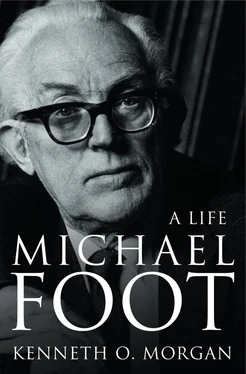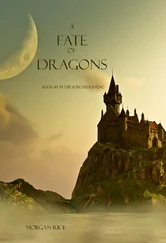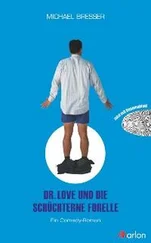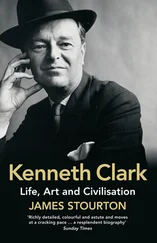1 ...7 8 9 11 12 13 ...41 In every other respect, Michael found life at Oxford great fun. He operated on a broad university basis and soon became a celebrated figure in journals and political clubs. Photographs of the time show a smart young man with neatly trimmed hair, a broad forehead and spectacles, invariably with a serious expression on his face, but evidently with a sense of humour. He played a little gentle soccer for Wadham. His old school magazine was told that ‘in the intervals of debating, politics and work … on occasions he announces pontifically from the depths of an armchair that one should constantly aim at acquiring not knowledge, but the Larger Vision. He also tells us that he has fully recovered from the effects of a recent holiday involving “cricket and all that” in Denmark.’ 32
The most interesting of the various social bodies he joined was the Lotus Club, an Anglo-Indian dining club of around fifty members at a time, twenty-five British and twenty-five Indian. It had been formed by an Indian, G. A. Chettur, in the mid-twenties to counter charges that Indians at Oxford were inbred and cliquey, basing their social life on the Majlis. Michael was always attracted to Indians, and at Oxford he made friends with several of them, notably D. F. Karaka, who was to succeed him as President of the Union, the first Indian so to serve, and whose early autobiographical work The Pulse of Oxford , published in 1933, conveys much of the gaiety of university life at that time. The Lotus Club invited guest speakers, and to Michael’s joy one of them was his father Isaac. The club, Michael wrote to him, ‘is a society existing for the promotion of friendship between Englishmen and Indians. Presumably you are supposed to make a speech about India.’ He stoked up his father’s enthusiasm for a visit to Oxford by mentioning a recent successful visit by Lloyd George, with whom Michael had breakfast. 33
But activities like the Lotus Club were really indications that by far Michael’s strongest interests during his three years at Oxford were political. Even measured against the university careers of his brothers Dingle and John, with whom he was constantly compared, his progress was remarkable. He became President of the Liberal Club in 1932, at the start of his second year, and was triumphantly elected President of the Oxford Union in June 1933, at the end of it. In October 1933 the undergraduate magazine Isis made him an ‘Isis Idol’, a supreme accolade amongst the student body. Quite apart from his powerful background in Liberal politics, Michael went up to Oxford at a critical moment which would have stirred any politically sensitive young man. In August 1931, just before he started at Wadham, a huge political and financial crisis in Britain saw the collapse of the second Labour government, and Ramsay MacDonald become, totally unexpectedly, Prime Minister of an all-party National Government. The Labour Party was divided and crushed at the general election that October, while the economy plunged into mass depression and heavy unemployment. For all subsequent Labour leaders, from Lansbury to Foot, MacDonald went down in the party’s annals as a legendary traitor who blackened the very name of leadership in the people’s party. Foot would mention his name darkly when he was a Cabinet minister during the financial crisis of the IMF loan in 1976. Meanwhile, the Liberal Party divided into three after the election: the National Liberals led by Sir John Simon (allied to the Tories), the mainstream followers of Sir Herbert Samuel, and Lloyd George’s family group of just four. Isaac Foot was returned unopposed at the election at Bodmin as a supporter of the mainstream group which followed Sir Herbert Samuel as wary members of the new government, rather than of Lloyd George, who led his family group into permanent opposition. Dingle Foot, returned for Dundee, took the same line as his father, though he later veered somewhat to the right.
Michael, a devoted Lloyd Georgian, did not approve at all of his family’s near apostasy. He chided his father amiably enough in early 1932:
Well, I hope you are feeling thoroughly uncomfortable in your present position. I hope that the responsibility for a niggardly disarmament policy and blustering (?) dealing with Ireland rests heavily on your shoulders. I hope that you squirm in your pronouncement of each tariff order. I suppose you will vote with patriotic resignation for the further cuts and a raising of the school leaving age. I suppose you shout with the best of them when Sir Samuel Hoare exclaims ‘that the dogs bark but the caravan still goes on’. Nevertheless, this is the greatest economic crisis in the history of mankind and national unity must be preserved.
Much love. Michael. 34
In fact the Samuel Liberals left the government en bloc in October 1932, when the government introduced tariffs and imperial preference to protect British industry and thus end a century of free trade, so father and son were for a time politically reunited. Dingle, however, remained alarmingly acceptable to the National Government, so much so that he was comfortably returned again for the two-Member Dundee constituency in 1935 without Conservative opposition, in harness with Florence Horsburgh.
Beyond the local vagaries of British politics it was an alarming world, in which democracy and international peace themselves were increasingly threatened. The menace posed itself most sharply when Hitler came to power in Germany in January 1933. With totalitarian regimes installed in Germany, Italy and the Soviet Union, and the economies of major industrial nations in ruins as a result of the Depression, the relative tranquillity of Foot’s childhood in the twenties had disappeared. However, these were developments about which he read, rather than experiencing them at first hand as did the young Hugh Gaitskell or Denis Healey, say. Certainly they reaffirmed his commitment to liberal values. Unlike some famous Cambridge contemporaries, the siren call of Communism never seduced him.
Michael Foot was at this time still unshakeably a Liberal, albeit a left-wing one. The Liberal Club was then a powerful force in Oxford, with Lloyd George especially, according to Foot’s friend D. F. Karaka, evoking ‘little short of hero-worship’. 35 This was no mere youthful staging post: Foot’s Liberalism went to the core of his being. He was a devout free trader and civil libertarian. Although he had effectively lost his religious faith, the popular ethic of West Country nonconformity was still a guiding star. The Oxford Magazine recorded a speech of his at the Union in October 1932 in which ‘he destroyed the case for tariffs, condemned the Tariff Boards and laughed at Peter Pan industries which never grew up’. The writer added wryly, ‘This is the first speech, I think, in which Mr Foot has not mentioned the name of Mr Lloyd George. It was perhaps the best speech of the evening.’ 36 Foot’s Liberalism remained unflinching throughout his undergraduate years, and he affirmed it in an article, ‘Why I am a Liberal’, published in the News Chronicle in 4 April 1934, commissioned by that Liberal newspaper’s editor, Aylmer Vallance. Liberalism, he claimed, had largely created the ‘social and democratic institutions which this country already enjoys’. Above all, it was committed to the League of Nations and international peace: ‘I am a Liberal, first of all, because of the unfaltering resistance which liberalism is pledged to offer to those twin dangers of fascism and war.’ 37 There and elsewhere, his undergraduate speeches and articles show the centrality of international issues in underlining his liberalism, but it went to the core of his being. In later years, Barbara Castle would note that referring to his ‘Why I am a Liberal’ article could annoy Michael Foot and move him on to other subjects. 38
Читать дальше












